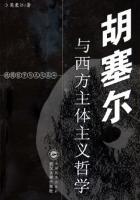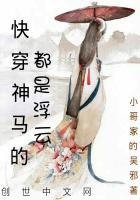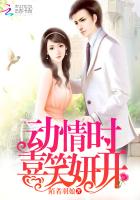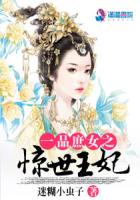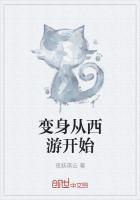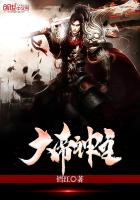Most of the literati of the late Ming Dynasty lead highly social lifestyles. Many of the sons from rich and powerful families, together with literati and scholars would gather in Nanjing to indulge in literary activities. It soon became commonplace for them to compose and exchange poetry, hold academic discussions and critique society and its politics. Among the numerous scholarly associations, the most notable was a large and influential group called the Restoration Society, which was founded by well meaning and righteous intellectuals. Their chief concern was the current political climate.
A man by the name of Hou Fangyu was one of the members of the Restoration Society. Hou was born into a notable family in the central Chinese province of Henan. Not only was he handsome and cultured, but Hou was also bestowed with outstanding literary and artistic talents and thus excelled at the composition of poetry and prose.
As chance would have it, Hou’s imperial examinations in Nanjing coincided with the outbreak of war. He was therefore found it difficult to establish contact with his family. However, he was so enchanted by the beauty and cultural environment of Nanjing that he rented a house by the Mochou Lake and settled down in the city. It was not long before he made friends with several members of The Restoration Society and was soon admitted into their association.
In the early spring of the sixteenth year in the reign of Chongzhen (1643), though it was still cold with frost on the branches and snow on the ground, the plum flowers of the ancient city of Nanjing were in full blossom. On this day, Hou Fangyu invited two of his friends from The Restoration Society, Chen Zhenhui and Wu Yingji, to visit a Taoist monastery at Yecheng and enjoy the blooming plum flowers. Arriving at the monastery, they saw a huge crowd of people. The reason for this gathering was that the son of a high official had invited many of his guests to enjoy the blossoming of the plum flowers and they occupied the entire yard. On seeing this throng of people, Hou Fangyu and his friends quickly lost interest and decided to find some other place to relax their bodies and minds. One suggested they visit the local beauties while another proposed going to listen to stories by Liu Jingting, a famous story-teller of the time.
When he heard the name Liu Jingting, Hou Fangyu shook his head and said, “Liu has long been a follower of the Bearded Ruan and I have no interest in listening to the stories told by a base person like him.”
Seeing Hou Fangyu’s aversion to Liu Jingting, Wu Yingji smiled and said, “Brother Hou, you have misjudged him. He was deceived into following the Bearded Ruan without knowing that this man had sought refuge with the notorious eunuch Wei Zhongxian. As soon as he heard that the Bearded Ruan was Wei Zhongxian’s adopted son, Liu left him at once. A man of such integrity deserves some respect.”
“Little did I expect a story-teller to be such an outstanding figure,” Hou said. “In that case, it is worth paying him a visit.”
So it was that the three of them came to Liu Jingting’s residence to listen to his stories. Not only were Liu’s stories vivid and gripping, but he was also exceptionally frank and generous with his time. He rapidly became enamored with Hou and his friends, who in turn admired Liu for breaking away from the Bearded Ruan.
The Bearded Ruan (whose real name was Ruan Dacheng) had received his nickname due to his bushy facial hair. To know more about the man, one needs to be briefed on the unique historical background of the Ming Dynasty.
During the reign of Emperor Shenzong (1573-1620), some of the relatively righteous officials in the royal court had restored the Donglin Academy; one of the four great academies of classical learning in the Northern Song Dynasty. Reestablished as a place to give political lectures, over time the academy developed an extensive social influence. In those days, the local gentry and celebrities of southern China, together with representatives of political parties and regional power groups began to give their support to a political party called the Donglin Faction centered on the Donglin Academy. People would often gather there to deliver political lectures and discuss state affairs.
Towards the latter stages of Emperor Shenzong’s reign, many eunuchs in the imperial court abused their power for their own benefit. This resulted in an increase in political corruption and an intensification of violent social conflicts. The Donglin Party proposed to cut tax and forced labor so as to develop the economy of South China. Moreover, the Party advocated freedom of speech and expression, and encouraged political criticism. These proposals had won broad social support but encountered fierce opposition from the eunuchs and their dependents.
In the reign of Emperor Xizong (1621-1627), when the eunuchs were ruling the roost, the royal court used a secret police called Dongchang (the Eastern Works) as its governing tool. This nationwide institution was controlled by the eunuchs and organized in such a way that everything would be directly reported to the emperor who bestowed them with the power to arrest and imprison any of his subjects at will. The chief of the Dongchang was a eunuch by the name of Wei Zhongxian who high-handedly and brutally persecuted dissidents, including members of the Donglin Party. Appalling injustice occurred and a number of the Party leaders were tortured and later executed.
In those days, Wei Zhongxian abused his power rampantly and by doing so he eased the path for his adopted son, Ruan Dacheng to rise rapidly in status. In the seventh year in the reign of Tianqi (1627), Emperor Sizong Zhu Youjian (or Emperor Chongzhen) ascended to the throne and Wei Zhongxian was duly impeached and exiled to Fengyang. He hanged himself before he reached his place of exile.






